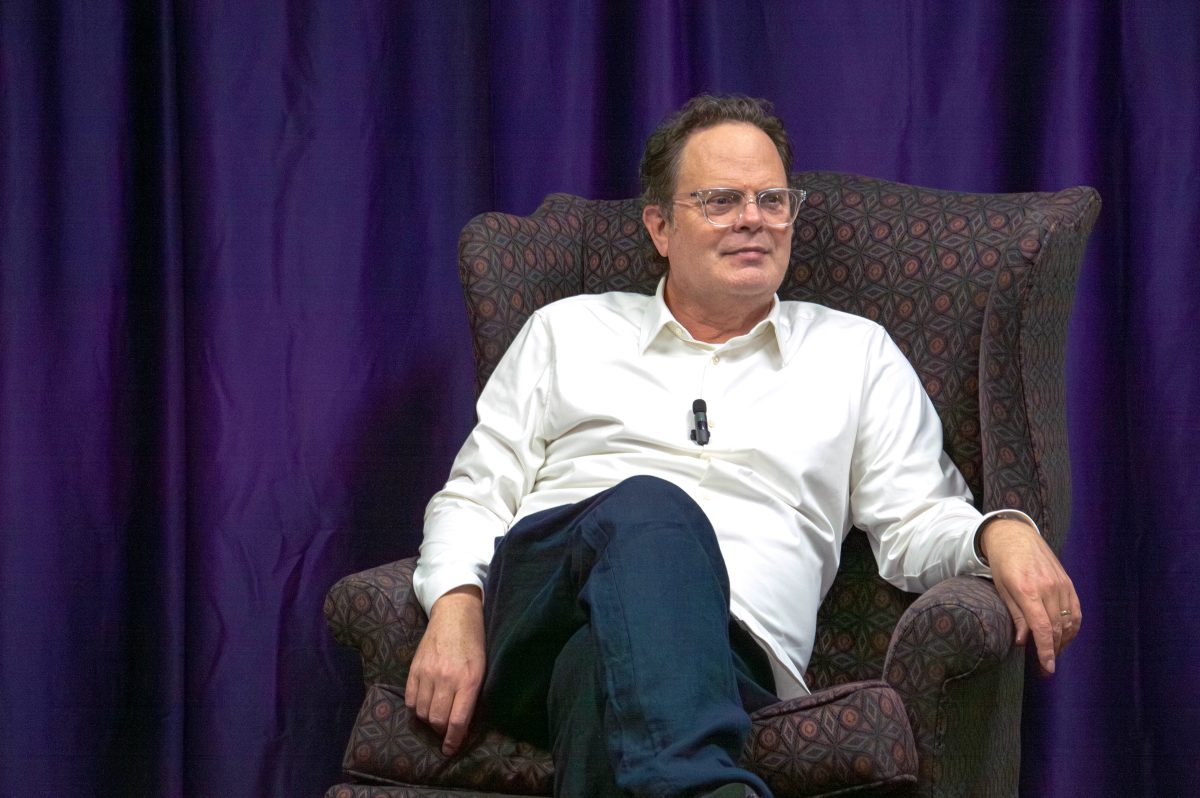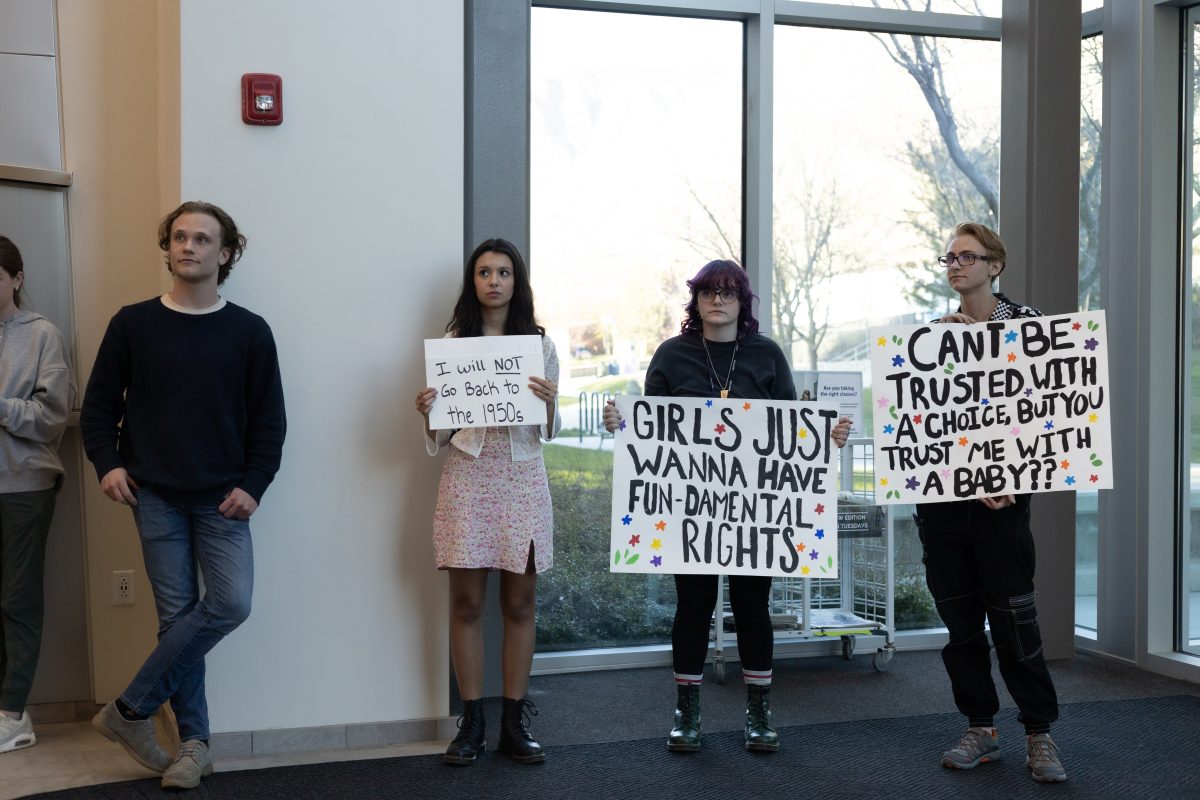
(Source: Joel Bass)
Today, microbiology professor Craig Oberg, nursing instructor Toby Nishikawa and athletic trainer Joel Bass will all go about their business like it was any other Wednesday at Weber State University.
But somewhere in their minds, all three will probably be thinking about two years ago when they were running the Boston Marathon, and two bombs ripped through cheering spectators, killing three and injuring more than 200.
“I think of that day every time I run a marathon,” Bass said. “I’ve run in several since that, and I think of that day every time we’re in a large group.”
None of the three were hurt that day, and the families who cheered them on also escaped serious injury. However, that day has changed their lives forever in small ways.
Oberg had planned to make that his final time running the Boston Marathon. He was going to keep pace with and support Bass, who was coming off an injury. Nishikawa had just finished recovering from a hospitalization that she feared would keep her from running.
The events of that day made a lasting impression, but it did not dampen their desire to run. Oberg reversed his plans and went back to the Boston Marathon last year. Nishikawa is planning her return to Boston’s streets next week, and Bass plans a future run in the marathon.
Today they will be recalling their memories of April 15, 2013.
Oberg had just crossed the finish line a few minutes before the first bomb exploded. When the bomb went off just a few hundred yards away from where he was standing, Oberg said he didn’t realize what had just happened.

“I had finished for about maybe eight or 10 minutes when I walked down a little bit to shoot some video, and I stopped to get a drink, and that’s when I heard the bomb go off,” Oberg said. “At first, it didn’t register to me that it was a bomb. I thought it was like some crazy cannon or something.”
He immediately began to worry about his family, who had been standing near where the second bomb detonated. They had gone inside a store to buy chocolate milk for Oberg after he crossed the finish line when the bomb exploded.
“They had been standing by the second bomb and walked past the first bomb about a minute or two before it went off,” Oberg said. “They were about 100 feet away or so, so they hadn’t been injured, but they had seen a lot of things that you probably shouldn’t have to see.”
Bass had been scheduled to fly back to Utah the day after the marathon, but he called the airline that evening to try and find the next flight leaving Boston. He had just one thought: get as far away from Boston as possible.
“(The airline) flew me to Minneapolis, and I said, ‘You know, I don’t really care which direction I go as long as I’m going away from Boston,’” Bass said. “I could tell I was affected a little bit for about a week or two weeks afterwards. I was kind of nervous about what was going on around me whenever I was out in the open.”
Nishikawa had gone into the marathon thinking that completing it was cause for a big celebration.

(Source: Toby Nishikawa)
“You couldn’t be excited that you had just run the Boston Marathon,” Nishikawa said. “You couldn’t celebrate your victory because of the overwhelming sadness and fear of what truly was going on. For me it was an anticlimactic feeling. I wanted to celebrate, but you couldn’t in your heart celebrate anything because of all the tragedy that had happened.”
Long after Oberg and his family had left Boston, he still thought of what happened and what he had seen.
“For a long time I (thought about the Boston Marathon). I just thought about how usually finishing a marathon is a lot of excitement, a lot of feeling of pride in the individual runners doing that and family members there for support,” he said. “I just thought about how that has really fundamentally changed what those people felt, and it changed for me too.”
Now, two years later, Nishikawa is returning to Boston to run in the marathon next week. Bass had planned to run in the Boston Marathon last year, but was unable to due to his work schedule. Despite the setback, Bass said he plans on returning to the marathon some day in the future.
Oberg had no intentions of returning to run in the Boston Marathon after that year. He said because of the events that had transpired and the fact he felt he had “done it enough times,” he had not planned to go back. It wasn’t until a conversation he had with his wife that he began to think differently.
“My wife turned to me and said, ‘Would you go back and run that?'” Oberg said. “She says, ‘I’d like you to do that. I’d like to stand in those same places again and show those people that I’m not afraid and that we’re not afraid.'”

(Source: Craig Oberg)
On April 21, 2014, Oberg found himself once again running through the streets of Boston. As he ran along the course, Oberg said the sides of the streets were packed with large crowds of people cheering on the runners and thanking them for returning.
In front of the Old South Church, just past the finish line, church members handed out hand-made scarves to the runners as a way of thanking them for returning and supporting Boston. For Oberg, the scarf means more to him than just a simple thank you.
“I got the medal hanging there, but that scarf hanging there means more to me than that finisher’s medal,” Oberg said. “It’s really symbolic of what I think of just the spirit of the running community and the American community as a whole.”
That finish also healed an important wound. Shortly after Oberg crossed the finish line, a moment of silence was held to mark the time of the bombings a year earlier.
“As soon as that was over, there was an unbelievable roar from the people. I have never heard anything like that,” he said. “This roar, this celebratory exultation from all the fans, I could almost physically feel this sound wave coming over me standing at the finish line. I think, for me, that washed the sound of those bombs out of my mind, and that’s the sound when I think of the Boston Marathon that I remember now.”














